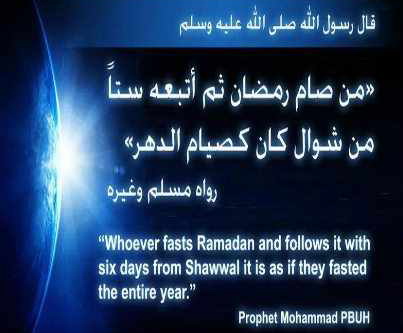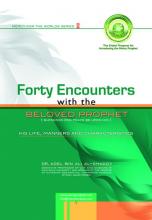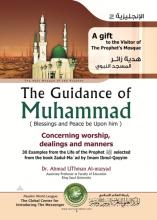The Prophet of Mercy Website
Muslim World League - Global Commission for Introducing the Messenger
What the Prophet (peace be upon him) promised to humanity:
All shall be questioned in the grave
The Prophet (peace be upon him) explained that whenever a person dies and is placed in their grave, be they Muslim or non-Muslim, they will be made to undergo the very first stage of the afterlife – a questioning in the grave. The enormity of such an inevitable event struck Uthman bin Afan, the caliph of Islam, so much so that whenever he would stand over a grave he would weep.
Those who witnessed this were perplexed, and asked of him: “You remember Paradise and Hell and you do not weep, but you weep because of this?” His reply was that he heard the Prophet (peace be upon him) say: ‘The grave is the first of the stages of the Hereafter; whoever is saved from it, whatever comes afterwards will be easier for him, but if he is not saved from it, what comes afterwards will be worse for him.’” And the Messenger of Allah (peace be upon him) said: “I have never seen any scene but the grave is more frightening than it.” [1]
It’s importance can be emphasised even further by pointing out that the Prophet (peace be upon him) used to teach his followers to include the following supplication in their prayers:
“O Allah! I seek refuge with You from laziness and old age, and from debts and sins; from the torment of the Fire and from the tribulation of the Fire, and from the tribulation of the grave and the torment of the grave, and from the evil of the tribulation of wealth, and from the evil of the tribulation of poverty, and from the evil of the tribulation of the Antichrist. O Allah! Wash away my sins with the water of snow and hail, and cleanse my heart from sin as a white garment is cleansed from filth, and put a great distance between me and my sins, as great as the distance You have made between the East and the West.” [2]
As for the questioning itself, it consists of two angels, they ask the deceased three vital questions:
1) Who his lord was.
2) What was his religion.
3) Who his Prophet was.
Each of the three questions will be answered truthfully according to how one lived his life. If he properly responds to each of the three questions he will be given glad tidings of an unimaginable reward awaiting him. Concordantly, if he is unable to do so, the two angels will inflict on him a painful punishment, the first of many yet to come. Such may be evidence in the following Hadith:
It was narrated that al-Bara’ (may Allah be pleased with him) said: We went out with the Messenger of Allah (peace be upon him) for the funeral of a man from among the Ansaar. We came to the grave and when (the deceased) was placed in the land, the Messenger of Allah (peace be upon him) sat down and we sat around him, as if there were birds on our heads. [3] In his hand he had a stick with which he was scratching the ground. Then he raised his head and said, “Seek refuge with Allah from the torment of the grave”, two or three times. Then he said, “When the believing slave is about to depart this world and enter the hereafter, there come down to him from heaven angels with white faces like the sun, and they sit around him as far as the eye can see. They bring with them shrouds from Paradise and perfumes from Paradise. Then the Angel of Death comes and sits by his head, and he says, ‘O good soul, come forth to forgiveness from Allah and His pleasure.’ Then it comes out easily like a drop of water from the mouth of a waterskin. When he seizes it, they do not leave it in his hand for an instant before they take it and put it in that shroud with that perfume, and there comes from it a fragrance like the finest musk on the face of the earth. Then they ascend and they do not pass by any group of angels but they say, ‘Who is this good soul?’ and they say, ‘It is So and so the son of So and so, calling him by the best names by which he was known in this world, until they reach the lowest heaven. They ask for it to be opened to them and it is opened, and (the soul) is welcomed and accompanied to the next heaven by those who are closest to Allah, until they reach the seventh heaven. Then Allah says: ‘Record the book of My slave in ‘Illiyoon in the seventh heaven, and return him to the earth, for from it I created them, to it I will return them and from it I will bring them forth once again.’ So his soul is returned to his body and there come to him two angels who make him sit up and they say to him, ‘Who is your Lord?’ He says, ‘Allah.’ They say, ‘What is your religion?’ He says, ‘My religion is Islam.’ They say, ‘Who is this man who was sent among you?’ He says, ‘He is the Messenger of Allah (peace be upon him).’ They say, ‘What did you do?’ He says, ‘I read the Book of Allah and I believed in it.’ Then a voice calls out from heaven, ‘My slave has spoken the truth, so prepare for him a bed from Paradise and clothe him from Paradise, and open for him a gate to Paradise.’ Then there comes to him some of its fragrance, and his grave is made wide, as far as he can see. Then there comes to him a man with a handsome face and handsome clothes, and a good fragrance, who says, ‘Receive the glad tidings that will bring you joy this day.’ He says, ‘Who are you? Your face is a face which brings glad tidings.’ He says, ‘I am your righteous deeds.’ He says, ‘O Lord, hasten the Hour so that I may return to my family and my wealth.’ But when the disbelieving slave is about to depart this world and enter the Hereafter, there come down to him from heaven angels with black faces, bringing sackcloth, and they sit around him as far as the eye can see. Then the Angel of Death comes and sits by his head, and he says, ‘O evil soul, come forth to the wrath of Allah and His anger.’ Then his soul disperses inside his body, then comes out cutting the veins and nerves, like a skewer passing through wet wool. When he seizes it, they do not leave it in his hand for an instant before they take it and put it in that sackcloth, and there comes from it a stench like the foulest stench of a dead body on the face of the earth. Then they ascend and they do not pass by any group of angels but they say, ‘Who is this evil soul?’ and they say, ‘It is So and so the son of So and so, calling him by the worst names by which he was known in this world, until they reach the lowest heaven. They ask for it to be opened to them and it is not opened.” Then the Messenger of Allah (peace be upon him) recited (interpretation of the meaning):
“for them the gates of heaven will not be opened, and they will not enter Paradise until the camel goes through the eye of the needle”
[al-A’raaf 7:40]
He said: “Then Allah says, ‘Record the book of My slave in Sijjeen in the lowest earth, and return him to the earth, for from it I created them, to it I will return them and from it I will bring them forth once again.’ So his soul is cast down.” Then the Messenger of Allah (peace be upon him) recited the verse (interpretation of the meaning):
“and whoever assigns partners to Allah, it is as if he had fallen from the sky, and the birds had snatched him, or the wind had thrown him to a far off place”
[al-Hajj 22:31]
He said: “Then his soul is returned to his body, and there come to him two angels who make him sit up and they say to him, ‘Who is your Lord?’ He says, ‘Oh, oh, I don’t know.’ They say, ‘What is your religion?’ He says, ‘Oh, oh, I don’t know.’ Then a voice calls out from heaven, ‘Prepare for him a bed from Hell and clothe him from Hell, and open for him a gate to Hell.’ Then there comes to him some of its heat and hot winds, and his grave is constricted and compresses him until his ribs interlock. Then there comes to him a man with an ugly face and ugly clothes, and a foul stench, who says, ‘Receive the bad news, this is the day that you were promised.’ He says, ‘Who are you? Your face is a face which forebodes evil.’ He says, ‘I am your evil deeds.’ He says, ‘O Lord, do not let the Hour come, do not let the Hour come.’” [4]
To the one that disbelieves or to the one that harbours doubts, this matter may seem strange. One must understand that the nature of the body and soul in death is dissimilar to what it’s condition may be like in life. Having said this, it should also be pointed out that the questioning to occur is not merely a dream or hallucination which one shall be made to see, as well as being an emotional trial, it is something real and physical.
In regards to matters explained by Allah or his Prophet (peace be upon him), the Muslim is required to accept and believe. The one who disbelieves in Islam or the one who had doubts would typically ask how or why?
“But no, by your Lord, they can have no Faith, until they make you (O Muhammad) judge in all disputes between them, and find in themselves no resistance against your decisions, and accept (them) with full submission”
[al-Nisa’ 4:65]
[1] Narrated by al-Tirmidhi, 2308; Ibn Maajah, 4567; classed as hasan by al-Albaani in Saheeh al-Jaami, 1684.
[2] Narrated by al-Bukhaari, 6014.
[3] Meaning they were quiet and still.
[4] Narrated by Abu Dawood, 4753; Ahmad, 18063 – this version was narrated by him. Classed as saheeh by al-Albaani in Saheeh al-Jaami, 1676.
Source:
http://islam-qa.com/index.php?
http://islam-qa.com/index.php?
******






